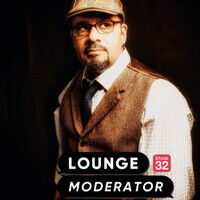So, my current WIP is an urban fantasy with 3 POV narrators that rotate between chapters in a consistent, unchanging order. Each chapter continues the story directly from the last chapter, but the POV rotates each time. This idea works. I think it allows the reader to understand each of the main characters at a personal level while also allowing the reader to learn privileged information that the characters don't necessarily have without using an omniscient third person narrator.
The struggle that I've been having is balancing chapter length with story beats divided by narrator. What I mean is that I have an outline, which I'm following, and it's working out great as far as the general story beats. With all my novels, I have the general rule that no chapter can exceed 5,000 words. At that point, I break the chapter into 2 chapters, each at least 1,500 words in length at a minimum. This system worked well for the first 4 novels I've written. But those were all third person omniscient narrator in past tense. With this project, I'm sometimes having chapters go longer and need to split them, but there are story beats that I sometimes want a specific character to be the narrator for. But it has happened more than once so far where the chapter length caused the chapter to have to end, thus changing the narrator for the next chapter, which in turn means that the character I wanted to narrate for that part of the story has to change.
This has not broken the story in any way, but it has been a real challenge in the fact that I don't want to break the rotation order or my chapter length rules. But there are certain parts of the book that I know would be better to read when narrated by one character of another. This is the most difficult novel I've ever written.





































3 people like this
So true. I like to say you should follow half of writing advice half the time. Because even the great advice isn't going to work for every situation/project. For instance, for years I've heard the adv...
Expand commentSo true. I like to say you should follow half of writing advice half the time. Because even the great advice isn't going to work for every situation/project. For instance, for years I've heard the advice "Write early! Block off your morning to write!" But here's the thing...per her routine comments, I'm a terrible writer in the mornings. I'm much more focused and motivated in the afternoon. But more often than not, I just have to write when time exists. Per the video, I also often edit as I go on projects for my clients because I already know the direction and it saves me time later. But for my own projects, I typically write and save heavy edits for later. It's also bonkers to me how rapid release writers do what they do. It's just not what I do either.
2 people like this
"Don't edit as you go." That's great advice for a lot of writers, but I love editing as I write, Ashley Renee Smith. I figure things out right then instead of waiting until later. My 1st draft is like...
Expand comment"Don't edit as you go." That's great advice for a lot of writers, but I love editing as I write, Ashley Renee Smith. I figure things out right then instead of waiting until later. My 1st draft is like a 4th/5th draft when I'm finished.
2 people like this
The one thing I agree with is that not all advice fits the author. I'm a pantser and have completed 7 novels with 2 more on the way. As she mentioned, I do get stuck, but unlike writer's block, I feel...
Expand commentThe one thing I agree with is that not all advice fits the author. I'm a pantser and have completed 7 novels with 2 more on the way. As she mentioned, I do get stuck, but unlike writer's block, I feel that my creative side just needs time to formulate a solution, which is why I always have a second project in the works. I have been learning how to outline in a number of screen writing courses and see the benefits, yet I'm still more comfortable doing it my way. I have a hard time think so far ahead. It's like chess. I can't plan more than two moves. But it works for me. And Stephen King.